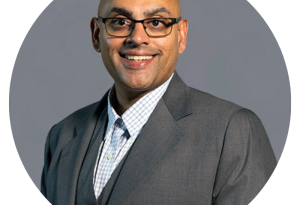When There is a Need of Oncologist with ENT Specialist?
There are times when the complex network of human health calls for the convergence of specialist knowledge.
On this matter, a variety of medical specialists get together to fight a common foe: sickness, each equipped with their own specific expertise and abilities.
A frequent example of this in the healthcare industry is the collaboration of an oncologist and an ENT specialist.
This partnership marks a crucial turning point in the fight against cancer, especially when malignancies appear in the head and neck areas.
The Intersection of Oncology and ENT: Unveiling the Need
The Enigma of Head and Neck Cancers
Imagine a delicate symphony orchestra where each instrument contributes in a special way to the creation of a melodic harmony.
Every organ in the human body serves a different purpose, and they all cooperate to preserve the harmony of life.
However, when strife occurs, it frequently takes the shape of illnesses like cancer.
One of the most prominent manifestations of this conflict is head and neck cancer, which need the combined knowledge of an oncologist and an ENT specialist.
A wide range of cancers, including those that affect the oral cavity, throat, nasal passages, and larynx, are included in the category of head and neck cancers.
Due to the delicate architecture and essential functioning of these tissues, these malignancies are infamous for their intricacy.
It’s not merely a battle against a single disease; it’s a multifaceted challenge requiring a multidisciplinary approach.
The Dual Expertise: Oncology and ENT
One must comprehend the functions each performs in the treatment of head and neck malignancies in order to appreciate the significance of an oncologist-ENT specialist team.
A doctor who specializes in treating cancer, or an oncologist, brings a thorough grasp of cancer biology, the most recent treatment techniques, and expertise in managing cancer patients to the table.

They are competent in many treatments for head and neck cancer, including chemotherapy, radiation therapy, immunotherapy, and targeted therapies.
The ENT Specialist represents the opposing side of this collaborative relationship. These doctors are experts in the anatomy and physiology of the head and neck.
They are skilled in identifying and treating diseases ranging from simple head and neck tumors to severe sinusitis.
The ENT Specialist’s expertise in surgical techniques, including delicate procedures like microvascular surgery and robotic-assisted surgery, is indispensable when it comes to removing cancerous growths or reconstructing damaged tissues in this region.
Early Detection and Diagnosis: The Key to Survival
Early identification is a ray of hope amid the maze of head and neck malignancies. Here is when the oncologist’s and the ENT specialist’s ability to work together really shines.
Early head and neck cancer symptoms might resemble benign illnesses and are frequently inconspicuous.
These include signs like on-going hoarseness, swallowing issues, a lump in the neck, or persistent nasal congestion.
Patients who have these symptoms should initially see an ENT specialist, who performs a comprehensive head and neck exam.
Endoscopy, imaging tests like CT scans and MRIs, and in certain situations, biopsies, might all be a part of this assessment.
With their diagnostic skills at their disposal, ENT specialists can recognize worrisome lesions or growths and start the diagnostic procedure.
Collaboration with an oncologist is crucial if a possible cancer is found. The patient’s general health is assessed by the oncologist, who then chooses the best course of action.
Additional imaging studies, cancer staging to determine its extent, and the creation of an all-encompassing treatment strategy may all be required.
A Brief Overview of ENT, Head & Neck Surgery
We frequently contact the top ENT doctors in Karachi and any other place we call home for issues like runny noses, painful throats, and plugged ears.
Otolaryngologist is the short form of the medical term for an ear, nose, and throat specialist, sometimes known as “ENT.”
The scope of contemporary ENT practice extends beyond these issues, and a better ENT clinic and ENT Specialist also handle instances of CSF (brain water) leak via the nose, oral cancer, throat cancer, lumps in the neck and face, and tumors of the brain near the nose.
For example, nearly half of patients who visit a local doctor have ENT problems; however, if no improvement is seen after a week of treatment, a patient should consult a specialist right away.
An ENT specialist is competent to undertake a variety of delicate surgeries, including those that aid in recovering hearing, opening airways that have been obstructed, and even removing cancer from the mouth, nose, ear, and neck region.
Due to minimal or no scarring, simple recovery, and improved results, the use of endoscopes in ENT procedures has recently become quite popular.
This calls for specialized expertise, and our ENT consultants have the training.
The Patel Hospital features a comprehensive ENT clinic with a few of the top ENT specialists in Karachi and is well-equipped with cutting-edge hearing testing (Audiology and Impedance Units) at the patients’ disposal.
For surgeries and treatments carried out in clinics, we employ tools like microscopes. Several ENT specialists who are excelling in their fields may be found at Patel Hospital.
In addition to providing top-notch patient care, the ENT unit also enjoys educating junior doctors since we have been granted CPSP recognition for fellowship in otorhinolaryngology (ENT).
What Specialization is Needed to Become Oncologist Surgeon?
A unique educational and training path is needed to become an oncology surgeon, also known as a surgical oncologist. Medical professionals known as surgical oncologists specialize in the surgical treatment of cancer. The procedures and specialties required to become an oncology surgeon are as follows:
1. Undergraduate Education (4 years):
Get your foot in the door by earning a bachelor’s degree in a related discipline, usually a science like biology or chemistry. It’s crucial to keep your GPA good when you’re an undergraduate and to pick up useful extracurricular activities in research or healthcare.
2. Medical School (4 years):
You must enroll in medical school after earning your bachelor’s degree. You’ll learn about a variety of medical topics throughout the course of these four years. At this point, you do not pursue an oncology specialty; rather, you pursue a general medical education.
3. Residency in General Surgery (5 years):
After completing medical school, you’ll enroll in a residency program for general surgery. You will receive thorough instruction in every facet of general surgery throughout your residency. This education is crucial because, before specializing in cancer surgery, surgical oncologists require a solid foundation in general surgery abilities.
4. Fellowship in Surgical Oncology (2-3 years):
You will submit an application for a fellowship in surgical oncology after finishing your general surgery residency. You will get specialized training in the surgical management of cancer throughout this fellowship. You will collaborate closely with skilled surgical oncologists during this time to develop knowledge of the many surgical procedures used to treat cancer.
5. Board Certification:
You’ll be qualified to apply for surgical oncology board certification after your fellowship is over. The certification procedure normally includes passing a written test and showcasing your surgical abilities.
Becoming ENT Surgeon: What Specialization is Needed?
To become an oncologist surgeon, there are some similar processes. Studies, however, sometimes differ. The processes and specialties required to become an ENT surgeon are as follows:
1. Undergraduate Education (4 years):
Start by earning a bachelor’s degree in a pertinent discipline, frequently a science such as biology, chemistry, or pre-medicine. Maintain a high GPA and take part in extracurricular activities that show a passion for the medical field.
2. Medical School (4 years):
Your undergraduate studies must be followed by four years of medical school. You will study a broad range of medical topics at medical school, such as anatomy, physiology, pharmacology, and pathology.
3. Residency in Otolaryngology (5 years):
After completing medical school, you’ll enroll in an ENT residency, also known as an otolaryngology residency. This five-year curriculum offers thorough instruction in the diagnosis and management of disorders of the head, neck, nose, and throat. Both surgical training and medical management are included.
4. Fellowship (Optional):
You have the option to seek additional specialized training through a fellowship after finishing your ENT residency. Although extra subspecialty study in fields like pediatric otolaryngology, head and neck cancer, or otology (ear surgery) is not required to become an ENT surgeon, some choose to do so to gain knowledge in certain ENT care areas.
5. Board Certification:
You can pursue board certification in otolaryngology by passing the exam given by the American Board of Otolaryngology or a comparable body in your nation after finishing your residency and any optional fellowships. A sign of skill and competency in an area is board certification.
The Complexity of Head and Neck Cancer Treatment
Treatment Modalities and Decision-Making
Treatment for head and neck cancer requires the knowledge of both an oncologist and an ENT specialist; it is not a one-size-fits-all method.
Surgery, radiation therapy, chemotherapy, immunotherapy, or a combination of these techniques may all be part of the treatment approach.
The kind and stage of the cancer, the patient’s general health, and the potential side effects all play a role in the choice of treatment or treatment combination.
The process of making decisions is collaborative. Considering the location and size of the tumor, the ENT specialist offers insights on the viability of surgical removal and repair.
In light of the cancer’s susceptibility to chemotherapy and radiation therapy, the oncologist provides advice on their suitability.
Together, they formulate a treatment plan that maximizes the chances of cure while minimizing the impact on the patient’s quality of life.
Surgical Precision and Reconstruction
Precision is crucial in the delicate art of head and neck cancer surgery. The delicate art of eliminating tumors while safeguarding vital tissues including the voice cords, salivary glands, and nerves is well-known among ENT surgeons.
They also do well in reconstructive surgery, which involves using grafts or flaps to replace missing or damaged tissues in order to restore function and aesthetics.
During and after surgery, communication between an oncologist and an ENT specialist is essential.
In order to guarantee that all cancer cells are destroyed, oncologists may advise adjuvant therapies like chemotherapy or radiation.
Since it has the potential to significantly impact the patient’s long-term health and post-operative recovery, this stage of treatment needs to be closely monitored.

Managing Side Effects and Rehabilitation
Treatment for head and neck cancer frequently entails a variety of adverse effects, from speech and swallowing impairment to aesthetic problems.
Here, the skills of an oncologist and an ENT specialist are essential.
To assist patients in regaining function and overcoming these difficulties, ENT specialists might offer therapies including speech therapy and swallowing exercises.
Conversely, oncologists control the negative effects of therapies like chemotherapy and radiation. To treat discomforts like pain, nausea, or other aches and pains, they may prescribe medicines.
In extreme circumstances, nutritional supplementation via feeding tubes can be required.
The collaborative approach ensures that patients receive thorough treatment throughout this difficult journey, addressing both the cancer and its impact on their everyday life.
The Outcomes of Collaboration
The Power of Multidisciplinary Care
In the field of treating head and neck cancer, the fusion of oncology and ENT has produced outstanding results.
Thanks to early identification, cutting-edge treatment techniques, and these doctors’ competence, survival rates have considerably increased over time.
The emphasis on maintaining function and quality of life has also improved many patients’ post-treatment experiences.
Related Article: Advancements in Targeted Therapies for Hematological Malignancies
It has become common procedure to hold multidisciplinary tumor boards, which bring together oncologists, ENT experts, radiologists, pathologists, and other professionals to review challenging situations.
This teamwork approach makes sure that every aspect of the patient’s health is taken into account, resulting in better treatment choices.
Survivor Stories
Every medical journey has inspirational tales of tenacity and success.
With the steadfast assistance of their oncologist and ENT specialist, patients who have fought head and neck malignancies act as rays of hope.
They serve as an example of the possibility of living a happy life after cancer and encourage others to keep going even when things look hopeless.
A Work of art of Healing and Expertise
The partnership between an oncologist and an ENT specialist is a melodious crescendo in the complex symphony of medicine, especially when tackling the mysterious world of head and neck malignancies.
The complexity of these cancers necessitates accuracy in diagnosis, therapy, and recovery, necessitating their combined expertise.
The crucial roles that both experts performed have been revealed by this trip through the intersection of medicine.
The ENT specialist contributes in-depth understanding of head and neck anatomy and surgical dexterity, while the oncologist delivers the strength of cancer therapy approaches.
They work relentlessly to ensure that patients not only survive, but also thrive as a unit, making them an unstoppable team.
An ENT specialist’s watchful eye frequently leads to the early discovery and diagnosis that are essential to effective cancer care.
Their expertise in diagnosis creates the conditions for prompt action.
When a probable malignancy is discovered, the oncologist intervenes to create a thorough treatment plan according to the patient’s individual needs.
Challenges pop up often over the course of treatment. The patient’s best interests are taken into consideration while making difficult decisions concerning surgery, radiation, and chemotherapy.
Tumors are surgically removed with accuracy to preserve function, and patients are assisted in regaining their lives through rehabilitation techniques.
Another obstacle to overcome is managing treatment side effects, but this one is handled with knowledge and kindness.
The results of this group effort are nothing less than glorious. Survival rates have increased, and survivors’ quality of life has significantly improved. A patient’s health is taken into account in every detail thanks to multidisciplinary treatment, which involves a variety of medical specialists in addition to oncologists and ENT specialists.
The accounts of the survivors come first and foremost. These people serve as live examples of the effectiveness of contemporary medicine and the commitment of their healthcare teams. Their experiences demonstrate that even the most difficult foes can be defeated with the appropriate knowledge and constant support, giving hope and motivation to those who find themselves on a similar road.
The requirement for an oncologist and an ENT specialist to work together in the treatment of head and neck malignancies is ultimately more than simply a question of need for medical reasons; it is also a monument to the amazing potential of human knowledge, talent, and compassion.
It serves as a reminder that there is power in unity and healing in cooperation, both in the field of health and in life itself.
This partnership serves as a bright example of what can be accomplished when devoted experts band together to address the most difficult health concerns as we continue to grow in the area of medicine. The trip through the intersection of medicine, where ENT and oncology meet, is a journey of healing, hope, and the tenacious human spirit. It is a voyage that serves as a reminder that despite difficulty, there is always room for victory and rejuvenation




